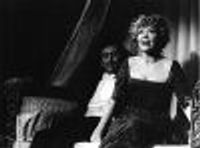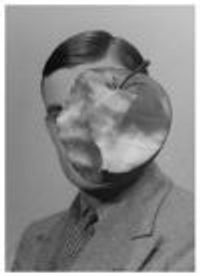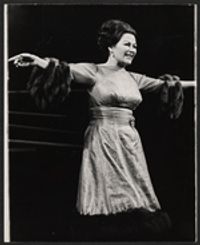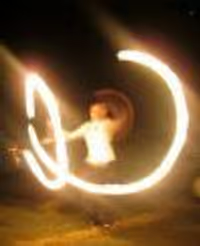Follies 1987 London Production (and general Follies thread =] )
#125Follies
Posted: 10/28/08 at 11:55pm
I just went to send someone the YouTube link to the talk-show performance of "You're Gonna Love Tomorrow"/"Love Will See Us Through" by the original quartet, and it has been pulled down.
Luckily I had saved it, so if anyone wants it, I'll put it up on YouSendIt.
BNN
Broadway Star Joined: 12/12/05
#128Follies
Posted: 10/29/08 at 2:53pm
It looks like Playbill Radio will have two Follies-related podcasts in November:
*Follies - (debuting on Playbill Radio Nov. 9 at 7 PM ET)
Paul Gemignani/"In Buddy's Eyes" - available for download Nov. 14
http://www.playbill.com/news/article/122836.html
#130Follies
Posted: 11/2/08 at 5:57pm
I've just had opportunity to catch up with the footage of Alexis Smith performing Lucy and Jessie and I'm floored. It does make so much more sense when you see it. I was one of those who felt the recorded version finished abruptly and wasn't satisfying, therefore I welcomed a rewrite for the London production; I even preferred Uptown, Downtown because listening to it engaged my mind more but seeing it has so much more of an impact, and yes, seeing the Alexis Smith/Michael Bennett version has so much more of an impact (I've seen the Follies in Concert version and although Lee Remick is cool the song feels as though it lacks something).
Laura, Amalia: I am on a tight schedule this week but will post more about the London production next weekend.
BNN
Broadway Star Joined: 12/12/05
#132Follies
Posted: 11/2/08 at 6:52pm
Does anyone forsee a possible revival in the near or distant future? I think the Encores! production was a big success but trying to get the four leads to transfer with it seemed like it would be difficult. Also, with the current financial mishygast I can't imagine putting on any sort of lavish production anytime soon, but I personally would love a revival in the future.
Or a movie, making a movie of Follies is fine too. :)
raker
Stand-by Joined: 12/27/08
#136Follies
Posted: 2/13/10 at 9:42pmI always wondered how Follies, with its glorious music, costumes, staging, and stars could have been a flop. I saw it only once, in a college production. I remember thinking, this show tells the whole story in the music. The book scenes are superfluous. This show I loved listening to seemed long and tedious on stage. And the original played with no intermission? Yikes.
#137Follies: more on the London production
Posted: 2/14/10 at 4:32pm
Did this get bumped because I never made those posts that I said I would?
Oki-dokes. C'mon folks, where I was going to go was...
to an article in in The Washington Post on 8th July 1987 by Barbara Rosen, who interviewed a number of people associated with the London production including James Goldman. And this is in response to Laura and particularly Amalia who asked
"Did Goldman ever discuss his views of the two versions?"
Rosen's interview reads:
Though conceding the possibility of some lack of clarity in the original production, Goldman stands fast behind his original work. "We thought that show was carved in marble," he said.
"It was no-one's intention to rewrite the show in order to attract a larger audience" this time around he stresses. "I originally said to Cameron, "Well, you know, probably 5 to 10 percent of this needs adjusting, and Cameron said 'That sounds fine to me.' "
But "the more I looked at it, the more I didn't like it anymore," Goldman said. "When I originally wrote it I was involved in a terrible marriage, and I was in the midst of a divorce when it went into production, and everything was awful." Now, happily married to his second wife Bobby, "I didn't feel that way anymore, and I didn't want my characters to feel that way. It isn't what I wanted the evening to say about growing older, about regret, about the passage of youth and the fading of beauty and times gone by."
Phyllis Rogers Stone
Broadway Legend Joined: 9/16/07
#138Follies: more on the London production
Posted: 2/14/10 at 9:15pm
That's really fascinating. I can see how who his personal life would inform his craft, but I always got something out of Follies that most people don't, I guess.
I always thought the original ended on such a hopeful note, with Phyllis and Ben making it clear that there was actually something to salvage, and her tacit acknowledgment that she always loved him and still does and the revisions to the script - particularly in the version that's currently published - bowdlerize that scene to the point it makes me hurt a little bit.
By contrast, Sally's story gets a little bit of an uplift, but I think at the expense of everything the show is about. By taking the edge of both Sally's despair and the fact that the Stones can survive makes the piece more depressing than the original ever could have been.
#139Follies: more on the London production
Posted: 2/15/10 at 1:06am
By contrast, Sally's story gets a little bit of an uplift, but I think at the expense of everything the show is about. By taking the edge of both Sally's despair and the fact that the Stones can survive makes the piece more depressing than the original ever could have been.
I've deliberately avoided seeing the show live for that reason. Yeah, the show is bitter, but Phyllis' resolve and determination will probably be enough to pull Ben through. There's no hope for a totally deluded and manipulative person like Sally and to imply that she's somehow going to cope after thirty years of self-induced hysterics seems false. I'm hoping the upcoming Kennedy Center production will be closer to the original, but since every critic is convinced that the original book is "weak," I doubt it will happen.
Phyllis Rogers Stone
Broadway Legend Joined: 9/16/07
#140Follies: more on the London production
Posted: 2/15/10 at 1:08amYeah, there's a "Take good care of him" line in the latest version that just makes me cringe.
#141Follies: more on the London production
Posted: 2/15/10 at 10:19am
Thanks, Scripps2!
Wherever Goldman was in his personal life, the reworking of the libretto for the West End production just didn't work for me.
Maybe sometime someone could get the necessary permissions to do the original Broadway Follies with songs and libretto intact and the West End version back to back. My expectations would be very different these days.
#142Follies: more on the London production
Posted: 2/16/10 at 12:02amIn the meantime, does anyone know how different the 'Highlights' and the (now out of print) 'Complete' recordings of the London production are? I know that they differ by only one track, however I was wondering if perhaps the remaining individual tracks were shortened / dance music cut etc. as per the original?
Phyllis Rogers Stone
Broadway Legend Joined: 9/16/07
#143Follies: more on the London production
Posted: 2/16/10 at 1:15am
As far as I know, only the inane "Social Dancing" was cut from the highlights release.
Do not pay full price for it.
#144Follies: more on the London production
Posted: 2/16/10 at 11:25amThis thread is gorgeous and I actually cried while reading Pal Joey's story about crazed collector. I was playing the part in "One Last Kiss" and as the same time I finished the story, it came to "all things beautiful must die".... it was so overwhelming... I thought it was noteworthy because I never cry... That was beautiful... thanks to all contributors :)
#145Follies: more on the London production
Posted: 2/16/10 at 4:25pm
The other things I also intended to reference were the reviews for the London production: most of them were unmitigated raves. However, amongst them, there were a couple of dissenters whose comments now seem prophetic.
“Now, streamlined and extensively rewritten, what was intended as a cool dissection of nostalgia is, frankly, a great big wallow in it. Follies has undergone a weird Jerry Hermanisation…” The Independent, 23/07/87.
“This elegant and elegiac Follies arrives in London two years after the rougher, sharper, more intimate and moving Manchester production whose success led Sondheim and Goldman to take the show off the shelf and look at it again. Have they misread that success?” Michael Ratcliffe, The Observer, 26/07/87.
Having seen the Manchester production myself, which used the original Broadway book and score in their entirety, I found the London production to be an anti-climax. But the poster design, intriguing in its own right, had warned me that there was going to be a change in tone. I remember staring at the first advert in the newspaper and knowing this was going to be a very different Follies from the production I’d seen in Manchester and trying to work out for myself how it would be different. Twenty odd years later my memories of the Manchester production (including the bite and power of Goldman’s original book) remain far stronger than my memories of the saccharine and sepia-tinted London production. The Manchester production had generated such a buzz that there were major actors and actresses and even a government minister in the audience at the two consecutive (matinee and evening) performances I saw. I was a teenager at the time and even the audience made an impression on me!
When I see Follies now I don’t have a clue what I’m seeing. The last production I saw was in 2007 at a small theatre in a room above a pub where the concept was that the audience were guests at the party. I thought being a guest at the party might help me get back in touch with the original genius but, although a lot of the right dialogue was there, there was no feeling of being on an emotional rollercoaster or careering into the unknown as Loveland begins. So in my fantasy Follies I’m pinning my colours to the original book and score (though I could still be tempted to substitute Uptown Downtown for Lucy and Jessie).
“…the feeling persists that the fixing of Follies is not over yet. It probably never will be so enjoy.” Michael Ratcliffe, The Observer, 26/07/87
#146Follies: more on the London production
Posted: 2/16/10 at 9:16pm
though I could still be tempted to substitute Uptown Downtown for Lucy and Jessie
Blasphemy!
Watch this:
http://www.youtube.com/watch?v=6TxLGIdv85I
...or this
http://youtu.be/AmexU4Qd0HM
Several times.
Phyllis Rogers Stone
Broadway Legend Joined: 9/16/07
#147Follies: more on the London production
Posted: 2/17/10 at 1:38am
I'm pro-Uptown, Downtown, too.
The thing is - it's pretty much the same song as Lucy and Jessie. I think it's the better song, though.
I remember reading Sondhiem saying that he felt they were pretty much the same song, too, but Michael Bennett was insistant he change it, and Sondheim feels that's because Michael Bennett didn't like working with songs that were written prior to his involvement with the show. Maybe that was in the Chapin book?
#148Follies: more on the London production
Posted: 2/17/10 at 1:54am
I'm partial to Uptown, Downtown as well, especially this section:
She sits at the Ritz with her splits of Mumms
And starts to pine for a stein with her Village chums,
But with a Schlitz in her mitts down at Fitzroy's Bar,
She dreams of the Ritz, oh it's so schizo.
There's a glibness to Sondheim's "Lucy and Jessie" lyrics that I'm not fond of.
"Ask her, should she be uptown or down? / She's two of the most miserable girls in town." hits me in a way that "If Lucy and Jessie could only combine,/I could tell you someone/Who would finally feel just fine!" just doesn't.
Phyllis Rogers Stone
Broadway Legend Joined: 9/16/07
#149Follies: more on the London production
Posted: 2/17/10 at 1:56amI also always liked that her name was Harriet in the song, another feminized version of a man's name, like Phyllis itself.
Videos







